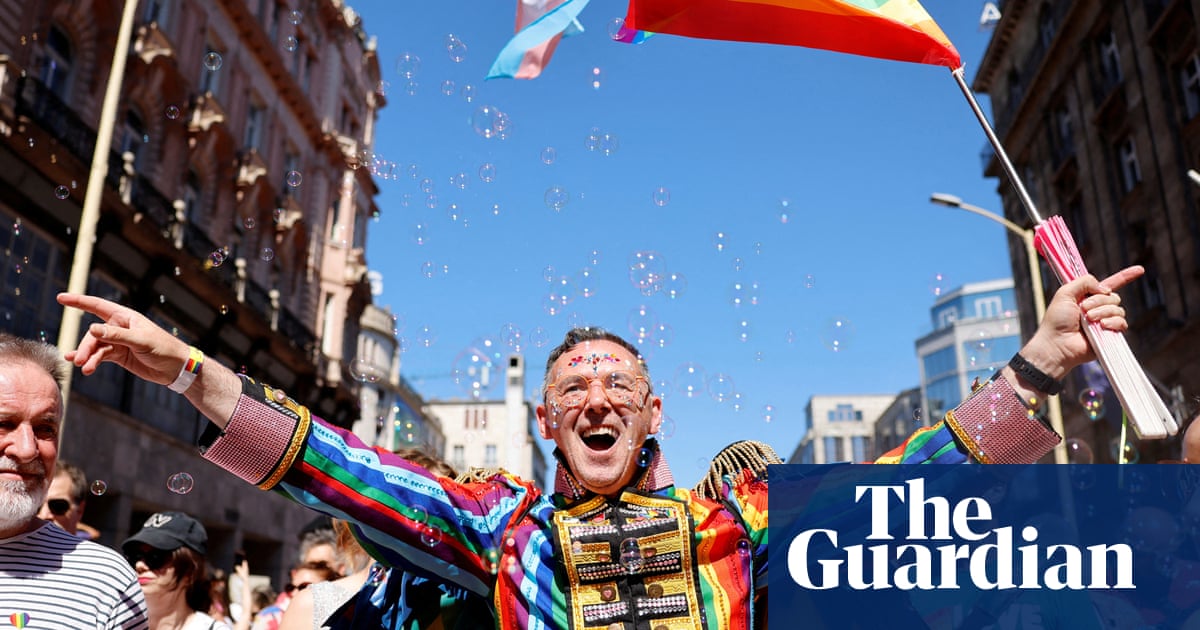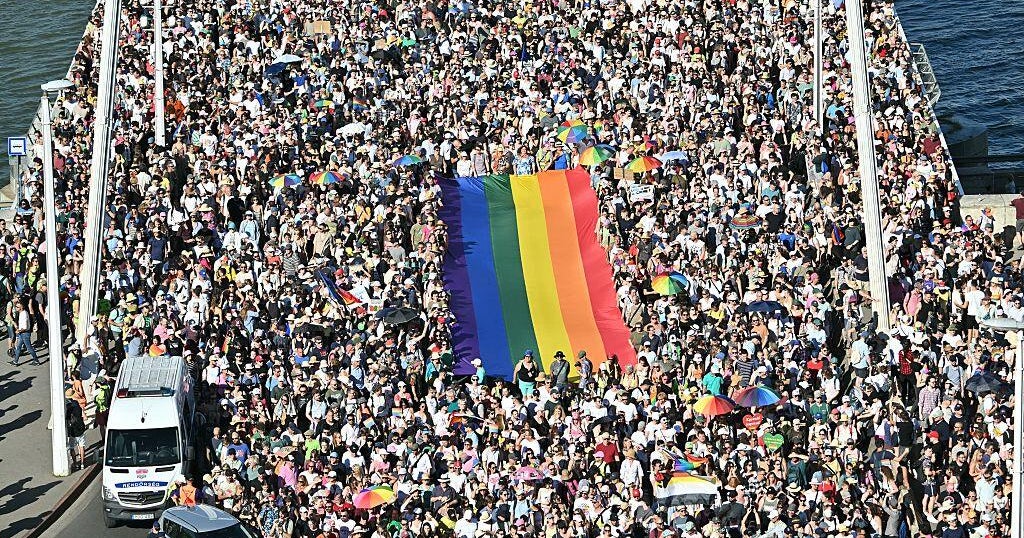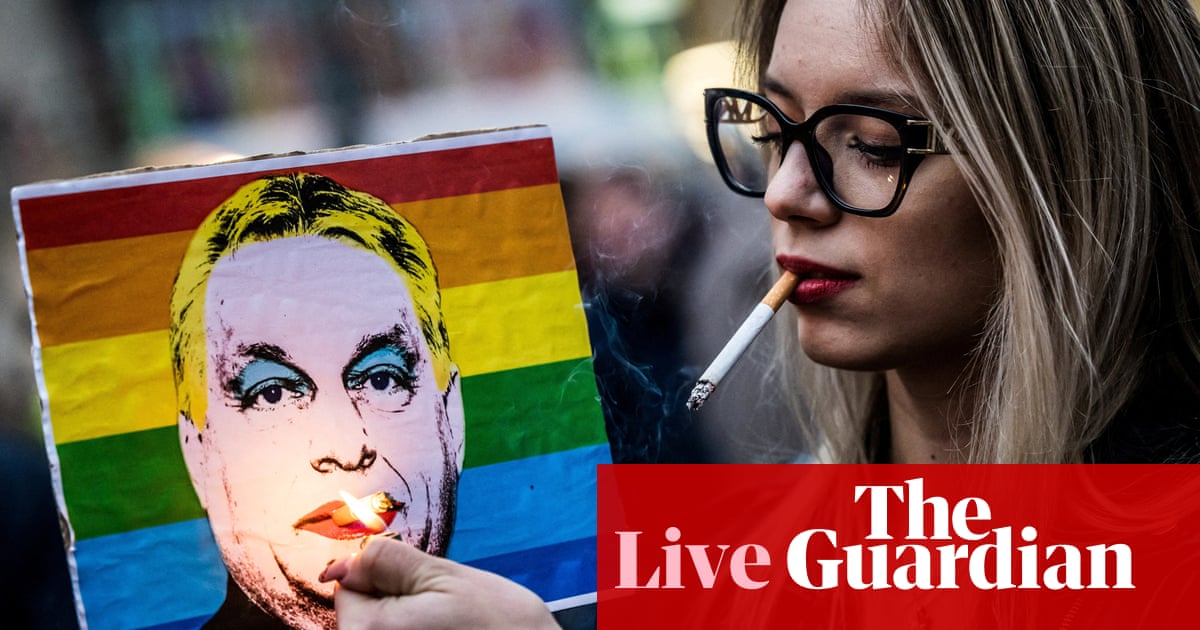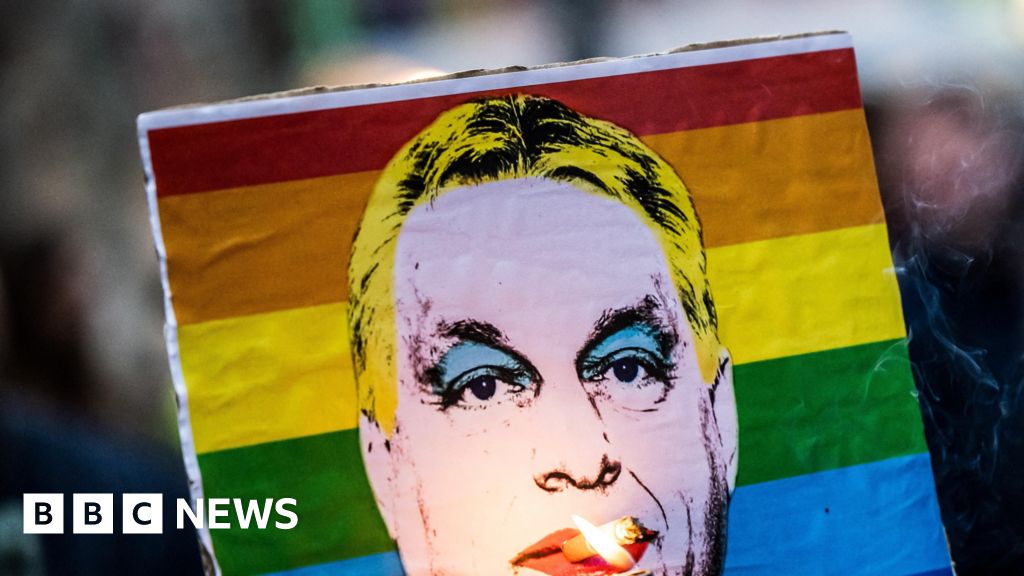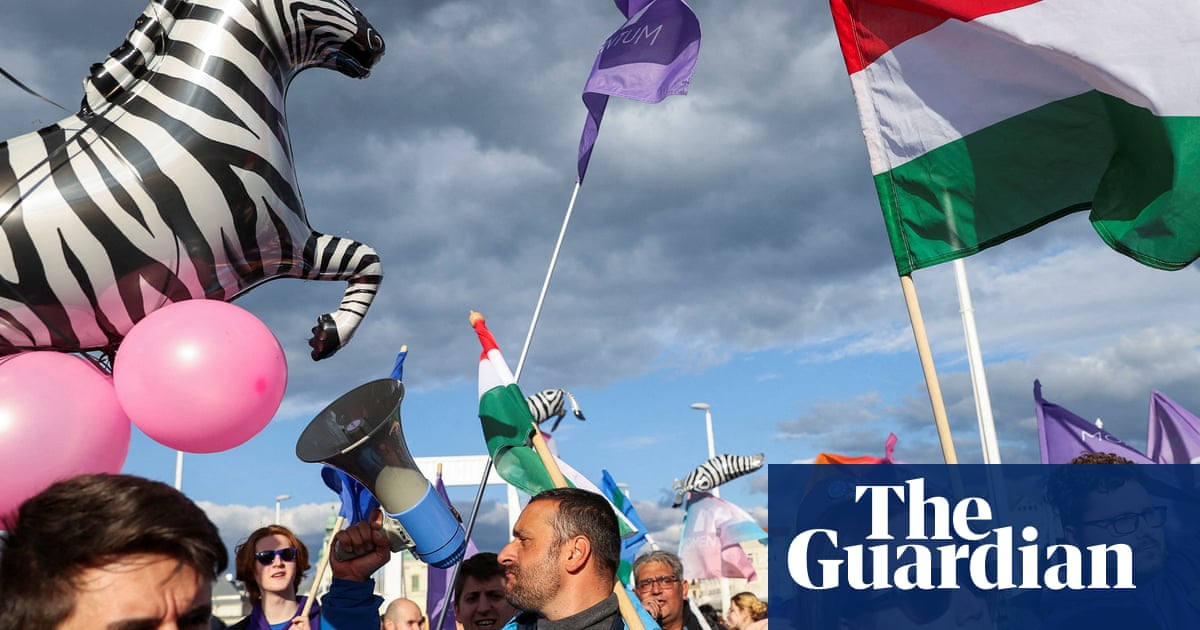Record Attendance at Budapest Pride Defies Government Ban
Around 100,000 participants marched in Budapest Pride, marking the largest LGBTQ+ event in Hungary's history, amidst government restrictions and heightened tensions.
Subscribe to unlock this story
We really don't like cutting you off, but you've reached your monthly limit. At just $5/month, subscriptions are how we keep this project going. Start your free 7-day trial today!
Get StartedHave an account? Sign in
Overview
- Around 100,000 people participated in Budapest Pride, making it the largest LGBTQ+ event in Hungary's history despite a government ban.
- The event served as a protest against Prime Minister Viktor Orbán's policies perceived as infringing on LGBTQ rights.
- Authorities employed facial recognition technology and diverted marchers from their planned route to separate them from far-right counterprotesters.
- The Budapest Pride event, now in its 30th edition, saw significant attendance from European Parliament members, showing international support.
- Participants view the event as a vital rallying point for defending LGBTQ rights in Hungary amidst increasing government restrictions.
Report issue

Read both sides in 5 minutes each day
Analysis
Center-leaning sources frame the Budapest Pride march as a significant act of defiance against government repression, emphasizing the scale and historical importance of the event. They highlight the government's crackdown on LGBTQ+ rights, portraying the marchers as courageous and the event as a political statement against Prime Minister Orbán's policies.
Articles (10)
Center (4)
FAQ
The Hungarian government, led by Prime Minister Viktor Orbán, fast-tracked a law in March 2025 that made it an offense to hold or attend events that 'depict or promote' homosexuality to minors under 18, explicitly targeting Budapest Pride as part of this legal restriction.
Authorities employed facial recognition technology to identify participants attending the banned event and diverted marchers from their planned route to keep them separate from far-right counterprotesters, with fines up to 200,000 Hungarian forints and prison terms for organizers.
The 2025 Budapest Pride had a record attendance of about 100,000 people, making it the largest LGBTQ+ event in Hungary's history and serving as a major protest against government policies perceived as infringing on LGBTQ rights.
European Parliament members attended the Budapest Pride event in significant numbers, showing international support for the LGBTQ+ community in Hungary amidst increasing governmental restrictions.
Participants viewed the event as a crucial rallying point to defend LGBTQ rights in Hungary, with signs emphasizing unity and freedom, such as 'None of us are free until everyone is free,' highlighting the broader struggle against oppression.
History
- 4M

 4 articles
4 articles
